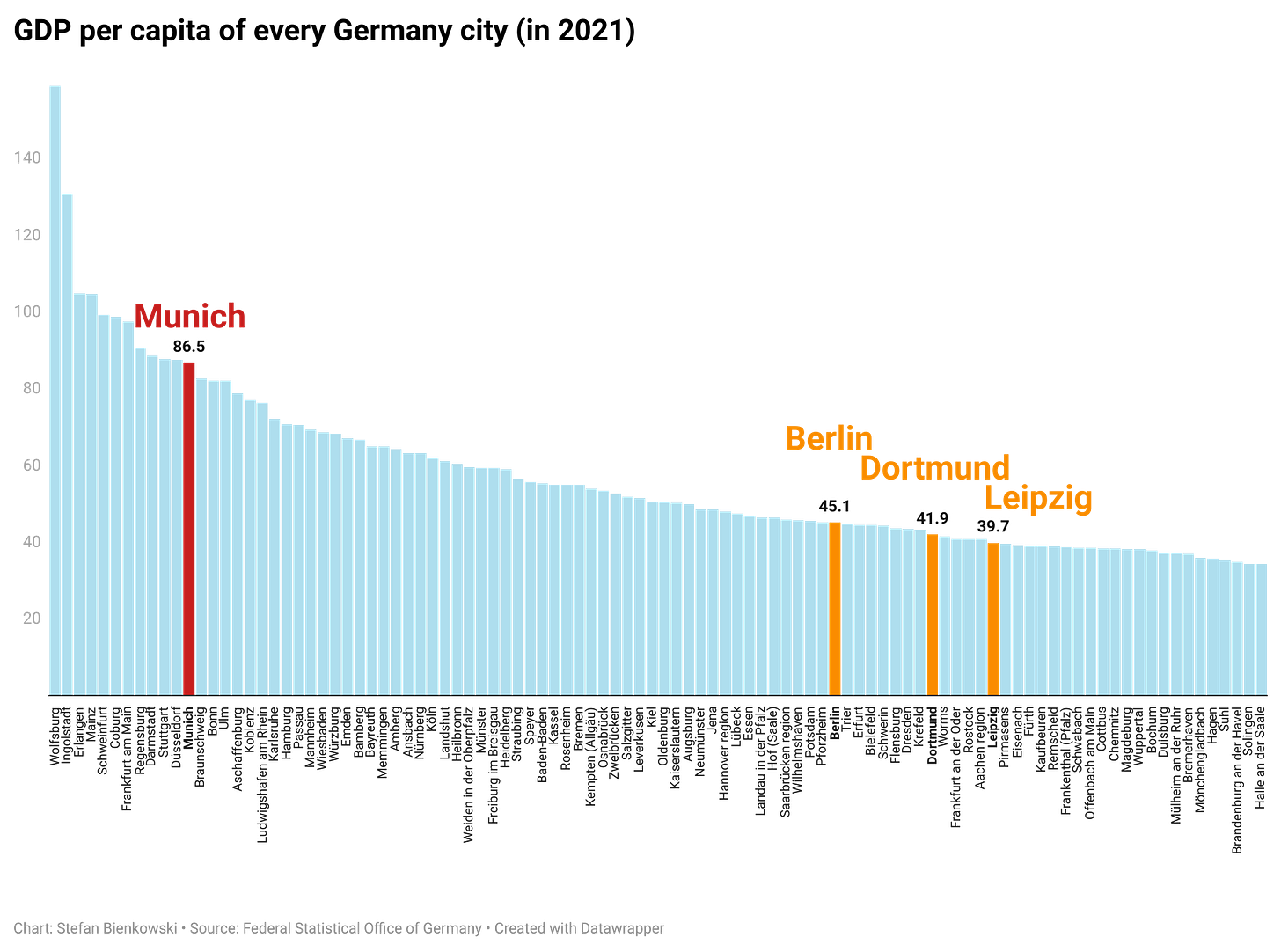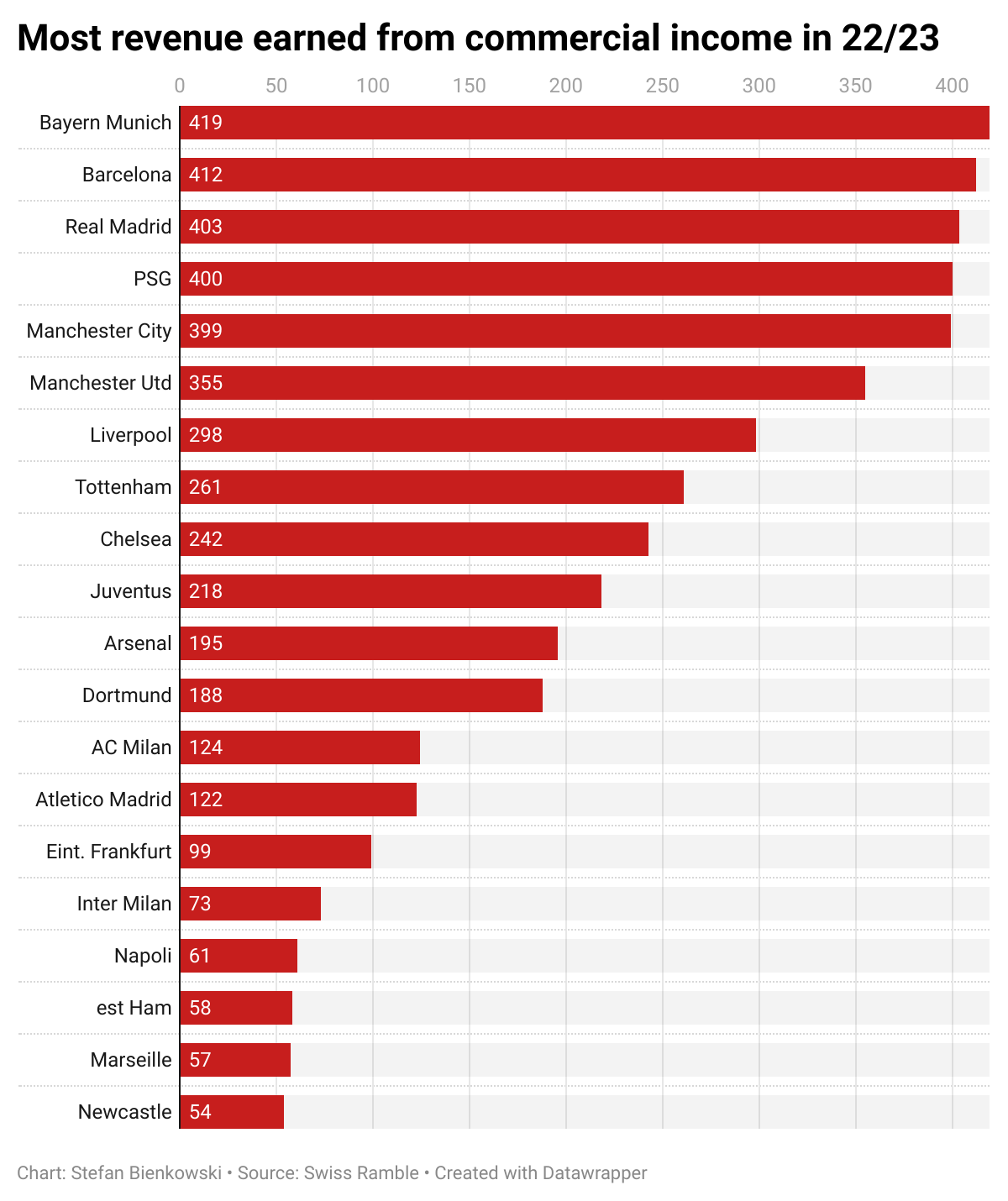Why geography helps Bayern Munich dominate the Bundesliga
The Bavarian giants typically win the German top-flight each and every season because, well, they're Bavarian giants. And can thank geography more than just about anything else for that.
The Bundesliga has a pretty poor reputation for being an uncompetitive league. Although Bayer Leverkusen are currently the reigning champions, most football fans are well aware of the fact that it took something resembling a miracle from Xabi Alonso to turn the top four side into a team that could go the entire league campaign undefeated.
Even though Leverkusen ultimately finished the season 18 points above Bayern Munich, it’s a well known fact that most clubs in Germany have to perform some sort of heroics to stop Thomas Muller & Co. from walking to the league title. Which is exactly why Bayern have won 11 of the last 12 league championships.
However, rather than simply buying up the best players or relying on Borussia Dortmund to implode each season, the real reason behind Bayern’s dominance of German football is something most football fans don’t often consider. And to understand why Bayern are so unique in German football we need only look at a map of the country.
When we plot the top 15 clubs by attendances - and therefore by natural size - we can see just how isolated Bayern really are. In the north we have Werder Bremen and HSV rubbing shoulders with one another, in the South West we have Stuttgart, Eintracht Frankfurt, Kaiserslautern and plucky Freiburg. And, most notably, in the North West we have Dortmund, Schalke, FC Koln and Borussia Monchengladbach taking lumps out of one another in a never-ending cage match of doom.
Even Hertha Berlin, who were once considered a lone club in a footballing wilderness, have newcomers RB Leipzig just an hour away on the train. And it surely won’t be long before Union Berlin break into the top 15 too. But, most importantly, Bayern sit on Germany’s southern border in relative peace, with the closest club being FC Nurnberg over 160 km away.
However, what makes Bayern’s isolation so interesting is that they’re hidden away in one of the richest parts of Germany. If Bavaria was a separate country it would have the 21st highest GDP in the world and accounts for around 19% of Germany’s entire economic output. And the city of Munich itself has a GDP that is twice that of Berlin, Dortmund or Leipzig. In other words, Bayern are the only show in town in one of Germany’s richest cities and to no great surprise that has come with a number of perks for the football club.
One need only look at a Bayern Munich top from recent years to see why being placed in Bavaria has helped the club’s bank account immensely. The kit manufacturer, Adidas, was founded in Bavaria and has been making Bayern’s kits since 1974. The sleeve sponsor, Audi, may now be owned by Volkswagen but was also founded in Bavaria and its headquarters remain there to this day. Allianz, the insurance company who pay to have their name plastered on one of the coolest stadiums in the world, were founded in Berlin but relocated to Munich after World War 2 and have remained there ever since.
Why these companies matter is because not only are they all long-term sponsors of the club, but they also own an actual share of it. To date, the three companies own between them one quarter of the club’s shares and, according to the excellent Swiss Ramble, pay the club no less than €123m per year for the privilege. This, unquestionably, is the backbone of Bayern’s economic muscle and why they are able to not only dominate in German football but are also one of European football’s most successful clubs.
According to the club’s most recent financial results, Bayern’s commercial revenue came in at €419m. That works out at 56% of the club’s overall revenue, which is the highest proportion of any of Europe’s biggest clubs. And is notably higher than some of their historic rivals in the Champions League, such as Real Madrid, Manchester United and Liverpool. However, what’s even more important to note here is that no other German club comes anywhere close to Bayern when it comes to money earned from sponsorship and commercial deals. Even Dortmund, who are unquestionably one of the most recognisable clubs in the world, make less than half of what Bayern earn each year.
To put that into perspective, let’s just take a moment to compare Dortmund and Bayern’s revenue streams. While the Bavarian giants earn 61% more from match day income and 29% more from TV rights, Bayern’s income from commercial deals such as the ones they have with Audi, Allianz and Adidas earn them 123% more than Dortmund do from their own commercial deals.
This, undoubtedly, comes down to geography. As we noted earlier, not only is Munich essentially a one-team city (sorry 1860 fans) unlike Dortmund, who are squeezed in amongst a number of other clubs from nearby towns and cities, but they’re also in a far richer part of the country. In other words, while Dortmund, Stuttgart and Eintracht Frankfurt may all represent their cities tremendously well, Bayern essentially represent an entire state with the economic might of Sweden or Belgium. And that’s exactly why it’s so hard for anyone except the Munich giants to win the Bundesliga each and every season.








I recently read Soccernomics and it talks about exactly this. I'm curious why there haven't been more successful clubs in Munich when places like London and Madrid have more than one. Interesting stuff!
It is hard to believe 1860 or Unterhacken can not squeeze some more financial support from the region.